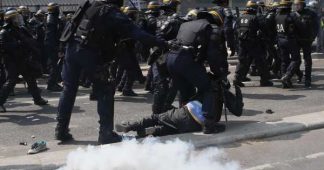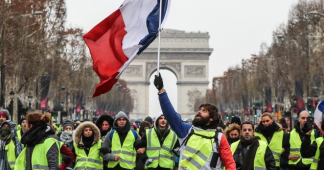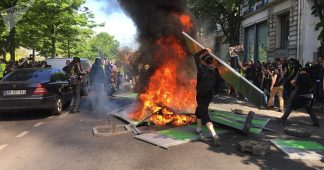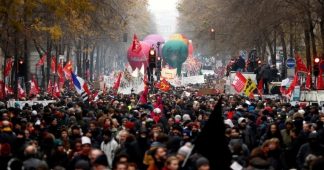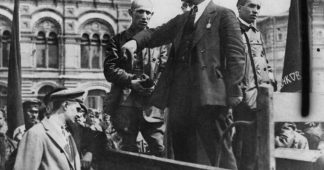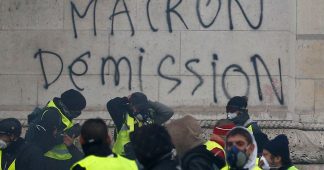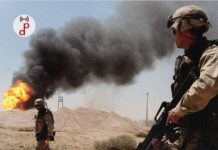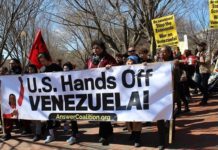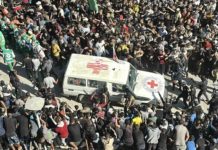The demonstration of May 30th in Paris was for solidarity against repression for racial, political or social reasons. It was organised by a lot of organisations, Trade unionists, yellow vests, antiracist associations, leftist parties, anti-imperialist, antiwar groups, etc.
The demonstration was planned to take into account sanitary distanciation, etc, but since it was declared illegal yesterday we had to decide either to capitulate or to maintain it. Most organisations decided to maintain since the government used the pretext of pandemy against the demonstration, while, in the same time, it decided to open malls, churches, restaurants, and when subway is open anyway. The government’s decision was then seen as a pretext to test opposition forces and their degree of mobilisation. So it was an issue of balance of power for us and for them, and for the future since economical crisis, unemployement and mass poverty are becoming more and more obvious. We had then to maintain the demonstration and be as numerous as possible.
The demonstration was a success, massive and with huge participation of people of African origin without legal residence. They live in overcrowded workhouses where the danger to get contaminated during pandemy is strong so they were very much mobilized after the lockdown, and their demand is that the state should put them in empty now tourist hotels not only for human reasons but for health reason for all France. They are aware that they face the danger to be contaminated but that then they could later also contaminate all French people, so they feel now they are fighting for the interest of the whole society and it gives them a strong feeling of a social mission toward the country where they live and work, even if illegally. That’s very important too. And this process has to be linked with the fact that in the same time workers in food sector, transportation employees, health personnel staff (physicians, nurses and cleaning women together), etc did control the organization of their workplaces at the time where management were far and theoretically “teleworking” …so now we observe in France a new consciousness. Illegal working force is fighting for the health of “the whole nation” and workers or employees are the real masters of their working place and proved to be most often in better capacity to manage than “managers” and government. A new class consciousness developed then between really useful and responsible working people and not so strategically useful “leaders”, “managers”, etc. This does not mean that a complete revolution will appear tomorrow, may be yes or may be not, but anyway the balance of forces has changed at the national level at the moment when the balance of power is also changing on the international level.
This demonstration was a test and the first test after lockdown was positive. Police gased of course but my experience is that they were not very active comparing with harsh repression I observed from at least 2018, or even earlier. I had the impression observing policemen and comparing the situation with the one I experienced for the last two years of regular manifestations that policemen now look somehow tired and disapointed. They had two tough years since they know people do often hate them and I guess they thought that the lockdown crushed mass movements so with this manifestation they discovered things go back to where they were before and nobody knows for how long. We are then entering a new step of social unrests and government knows now things will not go easier for them than before the lockdown. In the same time, it is important for trade unions and leftist parties bureaucracies to know also that their base is mobilized at a moment Trade unions officials were tending to cooperate with government, employers unions and European institutions.
I cannot tell what will be the future but, anyway, we can now assume that our side is not ready to give up.
Paris, Bruno Drweski
